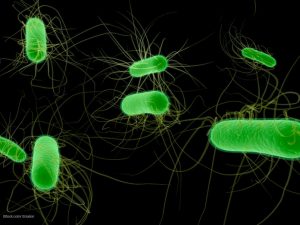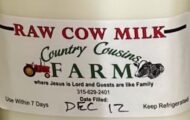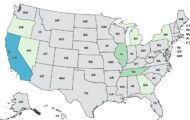Researchers at Kansas State University have found that a vaccine against E. coli 0157:H7 reduces levels of fecal shedding of the bacteria in cattle. That bacteria is the only one considered an illegal adulterant in beef. In fact, scientists discovered that using just two doses of the vaccine, instead of the manufacturer’s recommended three doses, reduces E. coli levels by more than 50%. That finding will not only reduce the cost of the vaccine, but will reduce work for the rancher.
 Cargill tested the vaccine on cattle in 2010. Pfizer purchased the rights to the vaccine a few months later. Cows do not become ill from the bacteria, but E. coli 0157:H7 is a dangerous pathogen in humans. The study was published in the online journal Vaccine.
Cargill tested the vaccine on cattle in 2010. Pfizer purchased the rights to the vaccine a few months later. Cows do not become ill from the bacteria, but E. coli 0157:H7 is a dangerous pathogen in humans. The study was published in the online journal Vaccine.
In the study, researchers evaluated 17,000 cattle on a feedlot in Nebraska over a 2-month period this summer by using the vaccine and a low-dose oral microbial made up of Lactobacillus acidophilus. The cattle population had “relatively high levels of E. coli 01570:H7″, according to the study. The number of cattle who shed E. coli 0157:H7 in their feces was reduced by more than 50%; and high shedders were reduced by more than 75%. The direct-fed, or oral, dose of the microbial product did not work as well as the vaccine.
The bacteria produce shiga toxins, which cause anemia and other serious conditions. E. coli 0157:H7 infections sicken more than 20,000 people every year, hospitalize more than 2,000, and cause about 500 deaths. Some patients, especially those under the age of 5, develop hemolytic uremic syndrome as a result of the infection, which is a potentially lethal complication that can destroy kidney function.
This study is the first published work that demonstrates efficacy of a 2-dose regimen. And it’s the first to show that cattle that were naturally shedding E. coli 0157:H7; another study showed reduced fecal shedding in young calves that had been inoculated with the bacteria.




